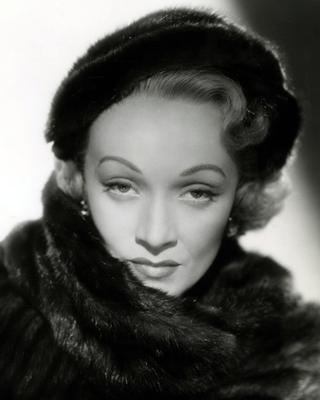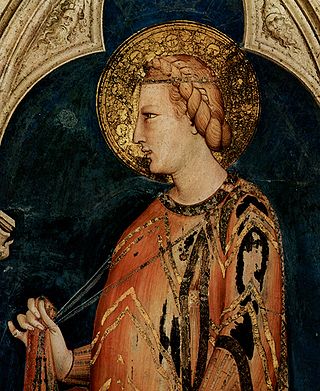Related Research Articles

Fra Angelico, OP was a Dominican friar and Italian painter of the Early Renaissance, described by Giorgio Vasari in his Lives of the Artists as having "a rare and perfect talent". He earned his reputation primarily for the series of frescoes he made for his own friary, San Marco, in Florence, then worked in Rome and other cities. All his known work is of religious subjects.

Dietrich Bonhoeffer was a German Lutheran pastor, theologian and anti-Nazi dissident who was a key founding member of the Confessing Church. His writings on Christianity's role in the secular world have become widely influential; his 1937 book The Cost of Discipleship is described as a modern classic. Apart from his theological writings, Bonhoeffer was known for his staunch resistance to the Nazi dictatorship, including vocal opposition to Adolf Hitler's euthanasia program and genocidal persecution of the Jews. He was arrested in April 1943 by the Gestapo and imprisoned at Tegel Prison for one-and-a-half years. Later, he was transferred to Flossenbürg concentration camp.

Marie Magdalene "Marlene" Dietrich was a German and American actress and singer whose career spanned from the 1910s to the 1980s.

Lorenzo Ruiz, also called Saint Lorenzo of Manila, is a Filipino saint venerated in the Catholic Church. A Chinese Filipino, he became his country's protomartyr after his execution in Japan by the Tokugawa Shogunate during its persecution of Japanese Christians in the 17th century.

Elizabeth of Hungary, also known as Elisabeth of Thuringia, was a princess of the Kingdom of Hungary and the landgravine of Thuringia in Germany.

Dietrich Fischer-Dieskau was a German lyric baritone and conductor of classical music. One of the most famous Lieder performers of the post-war period, he is best known as a singer of Franz Schubert's Lieder, particularly "Winterreise" of which his recordings with accompanists Gerald Moore and Jörg Demus are still critically acclaimed half a century after their release.

Saint Dominic,, also known as Dominic de Guzmán, was a Castilian Catholic priest and the founder of the Dominican Order. He is the patron saint of astronomers and natural scientists. He is alternatively called Dominic of Osma, Dominic of Caleruega, and Domingo Félix de Guzmán.

Henry Suso, OP was a German Dominican friar and the most popular vernacular writer of the fourteenth century. Suso is thought to have been born on 21 March 1295. An important author in both Latin and Middle High German, he is also notable for defending Meister Eckhart's legacy after Eckhart was posthumously condemned for heresy in 1329. He died in Ulm on 25 January 1366, and was beatified by the Catholic Church in 1831.

Agnes of Montepulciano was a Dominican prioress in medieval Tuscany, who was known as a miracle worker during her lifetime. She is honored as a saint by the Catholic Church.

Osanna of Mantua was an Italian Dominican tertiary who gained notice as a stigmatic and mystic.
Augustine Fangi was an Italian Dominican friar and Catholic priest. He was commonly regarded in his time as a miracle worker, and, in serving as the prior of several of his Order's monasteries, was concerned with restoring and maintaining a faithful observance of the Rule of Saint Dominic. He was beatified in 1878.

Franz Schubert composed his lied "An die Musik" in March 1817 for solo voice and piano, with text from a poem by his friend Franz von Schober. In the Deutsch catalog of Schubert's works it is number D547. The original key is D major. It was published in 1827 as Opus 88, No. 4, by Thaddäus Weigl. Schubert dedicated the song to the Viennese piano virtuoso Albert Sowinsky on April 24, 1827, a decade after he composed it.

The Fritzl case emerged in 2008, when a woman named Elisabeth Fritzl told police in the town of Amstetten, Lower Austria, that she had been held captive for 24 years by her father, Josef Fritzl. Fritzl had assaulted, sexually abused, and raped his daughter repeatedly during her imprisonment inside a concealed area in the cellar of the family home. The abuse resulted in the birth of seven children: three of them remained in captivity with their mother; one died shortly after birth and was cremated by Fritzl; and the other three were brought up by Fritzl and his wife, Rosemarie, having been reported as foundlings. Josef Fritzl was arrested on suspicion of rape, false imprisonment, manslaughter by negligence, and incest. In March 2009, he pleaded guilty to all counts and was sentenced to life imprisonment.

Within Catholicism, a miracle of the roses is a miracle in which roses manifest an activity of God or of a saint. Such a miracle is presented in various hagiographies and legends in different forms, and it occurs in connection with diverse individuals such as Saints Elizabeth of Hungary (1207–1231), Elizabeth of Portugal (1271–1336), Saint Dorothy, a 4th-century virgin martyr at Caesarea in Cappadocia, and Our Lady of Guadalupe.

The Prager-Haus or Bernhard-Prager-Haus is the former home of the Jewish Prager family, situated in Apolda, Thuringia, Germany, in Pragergasse, a narrow alley.

Dietrich von Bern is the name of a character in Germanic heroic legend who originated as a legendary version of the Ostrogothic king Theodoric the Great. The name "Dietrich", meaning "Ruler of the People", is a form of the Germanic name "Theodoric". In the legends, Dietrich is a king ruling from Verona (Bern) who was forced into exile with the Huns under Etzel by his evil uncle Ermenrich. The differences between the known life of Theodoric and the picture of Dietrich in the surviving legends are usually attributed to a long-standing oral tradition that continued into the sixteenth century. Most notably, Theodoric was an invader rather than the rightful king of Italy and was born shortly after the death of Attila and a hundred years after the death of the historical Gothic king Ermanaric. Differences between Dietrich and Theodoric were already noted in the Early Middle Ages and led to a long-standing criticism of the oral tradition as false.

The Blessed Vitas, O.P., or Wit was a Polish Dominican friar from the Kraków convent and the first bishop in Lithuania (1253–1255).

Dietrichs Flucht or Das Buch von Bern is an anonymous 13th-century Middle High German poem about the legendary hero Dietrich von Bern, the legendary counterpart of the historical Ostrogothic king Theodoric the Great in Germanic heroic legend. It is part of the so-called "historical" Dietrich material and is closely related to, and always transmitted together with, a second Dietrich poem, the Rabenschlacht. A Heinrich der Vogler is named as author in an excursus of the poem. Earlier scholarship considered him to be the author of Dietrichs Flucht and possibly also of the Rabenschlacht, however more recent scholarship believes he is only author of this excursus.

Die Rabenschlacht is an anonymous 13th-century Middle High German poem about the hero Dietrich von Bern, the counterpart of the historical Ostrogothic king Theodoric the Great in Germanic heroic legend. It is part of the so-called "historical" Dietrich material and is closely related to, and always transmitted together with, a second Dietrich poem, Dietrichs Flucht. At one time, both poems were thought to have the same author, possibly a certain Heinrich der Vogler, but stylistic differences have led more recent scholarship to abandon this idea.
Dietrich und Wenezlan is a fragmentary Middle High German poem about the legendary hero Dietrich von Bern, the counterpart of the historical Ostrogothic king Theodoric the Great in Germanic heroic legend. It usually considered part of the so-called "historical" Dietrich material, as it appears to cite Dietrich's exile at the court of Etzel described in the "historical poems" Dietrichs Flucht and the Rabenschlacht. The fragment of about 500 lines tells of Dietrich's challenge by Wenezlan of Poland, who has captured one of Dietrich's warriors. It is unclear whether the fragment was the main focus of a poem or a single episode from a longer poem.
References
- Monika Rener (1993), Die Vita der Heiligen Elisabeth des Dietrich von Apolda